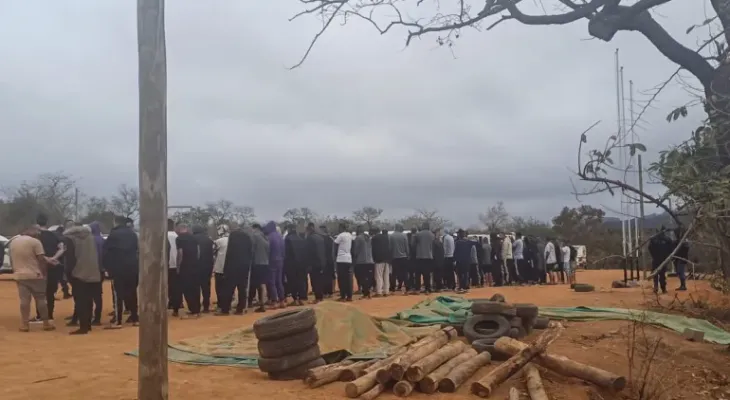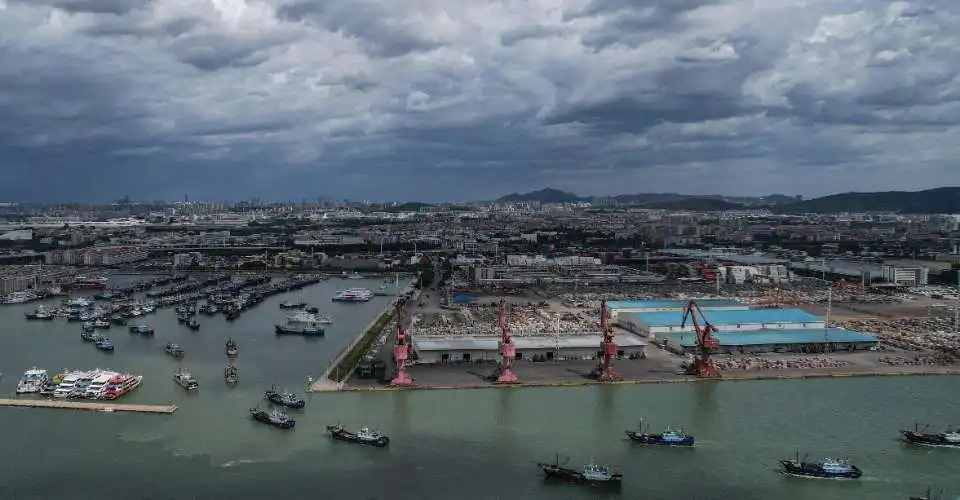
India has not joined the widespread condemnation of Russia’s invasion and is a major buyer of Russian arms.
But it faces a diplomatic balancing act, and is under pressure from Western countries to help rein in Russia.
Following the talks India said it favoured peaceful resolutions of conflicts but did not criticise Russia.
India, which is a nuclear power, has a long history of pursuing a non-aligned strategy in international politics, not tying itself to the interests of other superpowers or political blocs.
Russia’s Foreign Minister Sergei Lavrov – who also met Indian’s Prime Minister Narendra Modi – spoke of the “friendship” between the two nations in his statement.
“These days our Western colleagues would like to reduce any meaningful international issue to the crisis in Ukraine,” he said.
“[We] appreciate that India is taking this situation in the entirety of facts, not just in a one-sided way.”
Russia has justified invading Ukraine as a means to demilitarise and “de-Nazify” its neighbour, an argument widely dismissed by the West as a baseless pretext for invasion.
Mr Lavrov’s Indian counterpart, S Jaishankar, “emphasised the importance of cessation of violence and ending hostilities”.
“Differences and disputes should be resolved through dialogue and diplomacy and by respect for international law, [the] UN Charter, sovereignty and territorial integrity of states,” India’s foreign ministry said.
India needs Russian military hardware as deterrence against China, with which it was involved in a deadly border clash with in 2020. China too has stopped short of condemning Russia’s actions in Ukraine.
The US chief sanctions strategist, Daleep Singh, alluded to Russia-China ties when he warned India that Russia would not be a reliable ally ahead of the foreign ministers’ meeting.
“Russia is going to be the junior partner in this relationship with China. And the more leverage that China gains over Russia, the less favourable that is for India,” he said.
India stepped up purchases of Russia oil after prices slumped in the wake of Western sanctions.
On Thursday, UK Foreign Secretary Liz Truss said she respected India’s decision to continue to buy oil but also urged “like-minded nations” to co-operate more closely on defence, trade, and energy and food security.
In recent weeks there’s been a conveyor belt of visiting dignitaries and diplomats who’ve come to India from the UK, US, China, Japan, Germany, Austria, Mexico, Nepal and Greece.
It seems as if every nation wants to get India on side – but India is resolutely staying neutral. Delhi prides itself on its independent foreign policy, yet its ties with Russia run deep and are also practical – it buys the vast majority of its weapons from Moscow.
The visit by Russia’s Foreign Minister Sergei Lavrov was a clear signal that India still sees Russia as an ally, even if many world leaders view it as an aggressor.
Prime Minister Modi even took time to meet Sergei Lavrov himself – contrast that to British Foreign Secretary Liz Truss and China’s Foreign Minister Wang Yi, both recent visitors who didn’t get an audience.
India’s relationship with Russia, and its diplomatic balancing act could turn it into an unexpected broker.
Sergei Lavrov said Moscow was open to India mediating in the crisis, while a statement from Prime Minister Modi’s office said he’d conveyed India’s readiness to contribute in any way to the peace efforts.






